AI+ Vibe Coder™
AP 111
Transform coding with AI + Vibe Coder™ to boost creativity, automate workflows, and build intelligent digital experiences.- Empower Creativity with AI: Fast, Fun, Future-Ready
- Beginner-Friendly Approach: Designed for aspiring creators eager to explore AI-assisted coding with ease and confidence
- Interactive Learning Journey: Blends core coding concepts, intuitive AI tools, and hands-on practice to build real problem-solving skills
- Creative Tech Exploration: Learn how AI enhances ideation, prototyping, and digital expression across modern tech workflows
- Project-Driven Growth: Provides guided exercises and practical projects to help you build, refine, and showcase your AI-powered coding talents
Why This Certification Matters
At a Glance: Course + Exam Overview
- Instructor-Led: 1 day (live or virtual)
- Self-Paced: 4 hours of content

Who Should Enroll?
Aspiring Programmers – Beginners eager to start their coding journey with the power of AI-driven learning and automation.
Tech Enthusiasts – Individuals fascinated by how AI transforms coding, app development, and digital innovation.
Students and Graduates – Learners seeking a practical foundation in programming enhanced by real-world AI applications.
Career Switchers – Professionals from non-technical backgrounds looking to enter the tech industry through AI-assisted coding.
Entrepreneurs and Creators – Innovators aiming to build smarter products, automate processes, and bring AI-powered ideas to life.
Skills You’ll Gain
- AI-Powered Programming
- Machine Learning Integration
- Generative Code Development
- Natural Language Coding
- Automated Debugging and Testing
- Data-Driven Application Design
- Prompt Engineering
- Algorithm Optimization
- AI Workflow Automation
- Ethical and Responsible AI Development
What You'll Learn
1.1 What is Vibe Coding?
1.2 Evolution of AI in Software Development – Low Code vs No Code vs Vibe Coding
1.3 Overview of Common AI Coding Tools by Functionality
1.4 SDLC for a Vibe Coding Product
1.5 Hands-on Lab: Familiarizing Learners with Multiple AI Coding Tools
1.6 Case Studies
2.1 Anatomy of a Good Prompt
2.2 Prompt Types – Instructive, Descriptive, Iterative
2.3 Prompting Patterns – Zero-Shot, Few-Shot, Chain-of-Thought
2.4 Hands-on Lab: Practice Zero-Shot, Few-Shot, and Chain-of-Thought Prompting
2.5 Use-Case 1: Creating a Python Calculator
2.6 Use-Case 2: Optimizing AI-generated Code Using Different Prompt Types
3.1 Reviewing and Refining AI-generated Code
3.2 Prompting for Bug Fixes and Test Coverage
3.3 Using AI-generated Unit Testing
3.4 Detecting Hallucinations and Unsafe Code
3.5 Hands-on Lab: AI-Assisted Debugging and Unit Testing
3.6 Activity Section
4.1 Planning the App: Frontend + Backend
4.2 Using IDEs and Code Generators to Scaffold Code
4.3 Connecting Components Using Natural Language
4.4 Deploying and Testing the MVP in Simulated Environment
4.5 Hands-on Lab: Building and Connecting the Frontend and Backend for Contact Form Submission
4.6 Hands-on Lab: Building a Standalone Desktop Calculator Application Using Tkinter
4.7 Hands-on Assignment 1: Task Management System – Full-Stack Development Using Prompts
5.1 AI Limitations and Biases
5.2 Prompt Injection and Mitigation Strategies
5.3 Data Privacy and Secure Coding
5.4 Responsible Use of AI in Production
5.5 Hands-on Lab: Build Awareness of AI Limitations and Responsible Practices
6.1 Apply All Learned Skills in a Real-World Project
6.2 Collaborate and Iterate Using AI Tools
6.3 Demonstrate End-to-End Development Using Prompts
6.4 Capstone Project Use Case: AI-Powered To-Do List Application
6.5 Capstone Project Use Case: AI-Powered Note-Taking Desktop App
6.6 Assignments
Tools You'll Explore

Python

TensorFlow
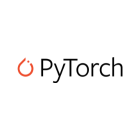
PyTorch

GitHub Copilot

OpenAI Codex

Hugging Face Hub
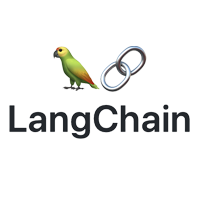
LangChain
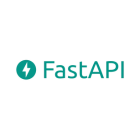
FastAPI

VS Code
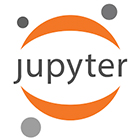
Jupyter Notebooks

Pandas
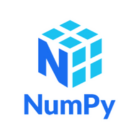
NumPy

Scikit-learn

Docker

Streamlit
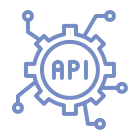
API Integration Tools
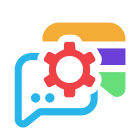
Prompt Engineering Frameworks
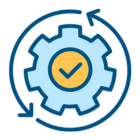
Automation SDKs
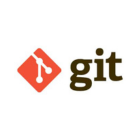
Version Control Systems (Git)
Prerequisites
- Basic Computer Skills – Comfortable with operating systems and files.
- Mathematics Fundamentals – Understanding of algebra and basic statistics.
- Logical Thinking – Ability to approach problems step by step.
- Programming Curiosity – Interest in learning coding from scratch.
- English Proficiency – Ability to follow technical instructions clearly.
Exam Details
Duration
90 minutes
Passing Score
70% (35/50)
Format
50 multiple-choice/multiple-response questions
Delivery Method
Online via proctored exam platform (flexible scheduling)
Exam Blueprint:
- Introduction to Vibe Coding & AI Tools – 15%
- Prompting for Code – Basics & Best Practices – 15%
- Debugging & Testing via AI – 15%
- Building a Simple Full-Stack App with Prompts – 20%
- Code Ethics, Security, and AI Limits – 20%
- Capstone Project – Prompt-Driven App – 15%
Choose the Format That Fits Your Schedule
What’s Included (One-Year Subscription + All Updates):
- High-Quality Videos, E-book (PDF & Audio), and Podcasts
- AI Mentor for Personalized Guidance
- Quizzes, Assessments, and Course Resources
- Online Proctored Exam with One Free Retake
- Comprehensive Exam Study Guide
Instructor-Led (Live Virtual/Classroom)
- 1 day of intensive training with live demos
- Real-time Q&A, peer collaboration, and hands-on labs
- Led by AI Certified Trainers and delivered through Authorized Training Partners
Self-Paced Online
- ~4 hours of on-demand video lessons, e-book, podcasts, and interactive labs
- Learn anywhere, anytime, with modular quizzes to track progress
Discover Your Ideal Role-Based Certifications and Programs!
Not sure which certifications to go for? Take our quick assessment to discover the perfect role-based certifications and programs tailored just for you.
Get CertifiedFrequently Asked Questions
Yes, this certification provides hands-on experience through real coding challenges and AI-driven projects. You’ll be ready to build intelligent applications and automate workflows from day one.
This certification uniquely combines programming fundamentals with AI-powered development, focusing on real-world automation, generative coding, and intelligent software creation.
You’ll work on projects like AI-assisted app development, automated code generation, chatbot creation, and a capstone project building an AI-powered coding assistant or tool.
The course blends expert-led lessons, interactive coding labs, and practical projects with real-world applications to ensure hands-on mastery of AI-integrated programming.
It equips you with high-demand AI coding skills, real-world project experience, and the technical foundation needed for emerging roles in AI software and automation development.




